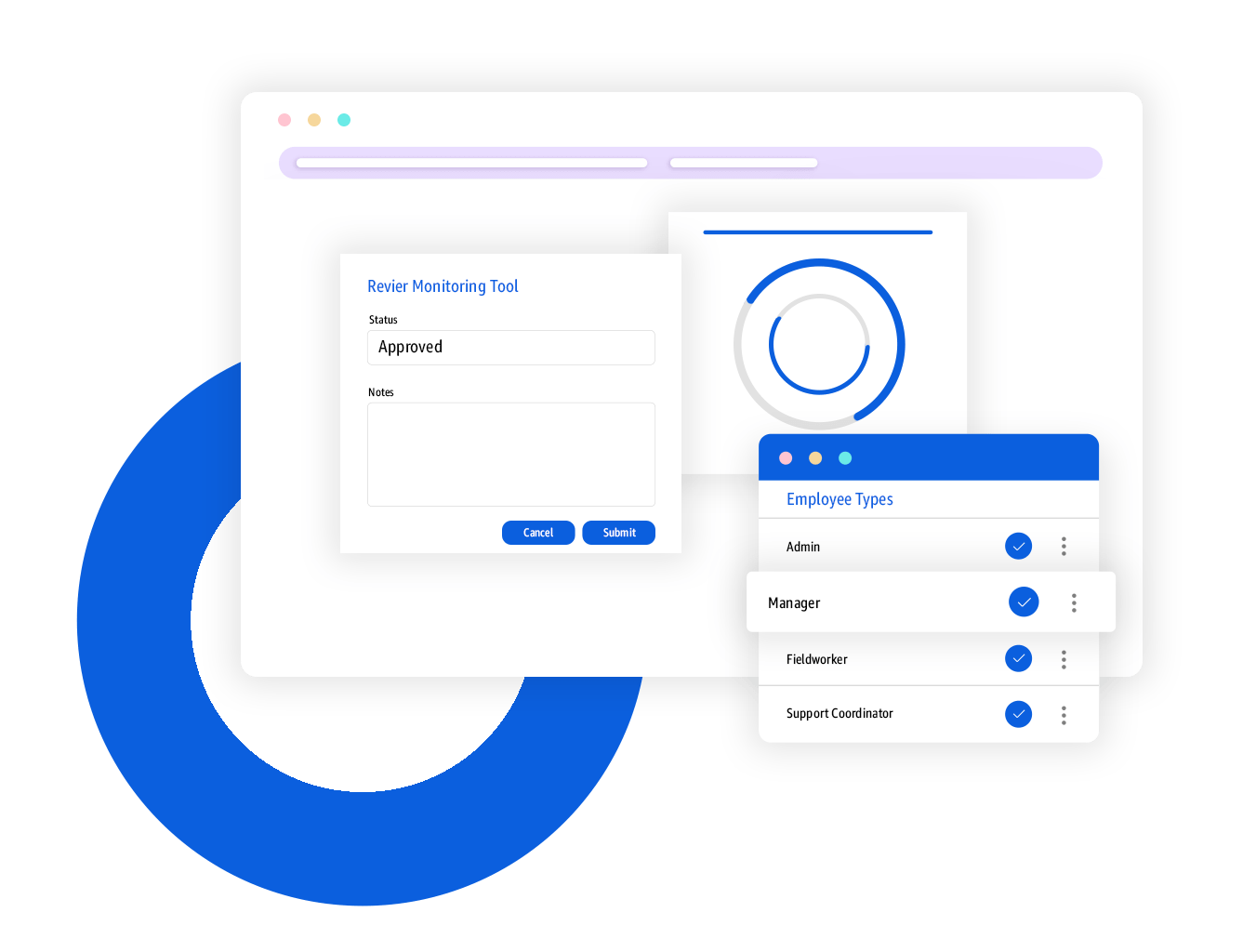There are approximately 6.5 million IDD individuals in the US. Additionally, according to the U.S. Census Bureau, there are more than 56 million adults aged 65 and older, accounting for about 16.9% of the total population. A stable system to care for these individuals is the need of the hour.
Additionally, there has been a paradigm shift in home healthcare, especially since the Covid pandemic. In fact, “the demand for home health and personal care aides is expected to increase 41 percent to more than 4 million jobs through 2026”. With that, the demand for care from the elderly, the ill, and individuals with disabilities are rapidly increasing. Also, there’s no denial that operating a care agency is a rewarding job.
If opening a care agency to meet the rising healthcare demands has been on your mind, look no further. Below are the fundamental aspects of setting up your business that includes planning, staff selection and retention, financial management or cost-benefit analysis, and marketing.
Although operating a care agency can be challenging, with the right plan and strategies along with a sprinkle of enthusiasm and commitment to serve the community, we promise it’ll be worth it.
Here’s how you can set up an agency from scratch:
1. Planning:
Just like any other business, setting up a care agency needs the backing of a strong plan. You need to have a solid, clear-cut set of strategies that will serve as the catalyst for your agency’s growth. Brainstorm and jot down while being as thorough with the details as possible. Conduct extensive market research to learn about the competitors, study the market trends, and finalize the target segment.
With a strategic plan, you can divide your goals into different and small detailed, achievable steps. Your plan could include:
- What is your main objective?
- What are the resources and your business strategy to achieve those objectives?
- Who is your target client?
- What services do you want to offer?
- How are you going to market your service?
- Cost-benefit analysis of your service and the revenue generated through it.
2. Staff selection and their retention:
The shortage of caregivers is the most crucial problem in the healthcare industry. According to a report, “a national shortage of 151,000 caregivers will exist by 2030 and there will be a shortfall of 355,000 caregivers by 2040”.
Healthcare workers are exiting the job because of reasons such as poor pay and benefits, degraded working conditions, extra burdens causing burnout, and non-respectful behavior towards them.
Here are a few tips to ease your staff selection and retention process:
- Define your ideal candidate before preceding further.
- Make the process of recruitment as easy as possible through an online meeting or a simple form.
- Put your caregiver first by setting realistic expectations and good pay along with bonuses.
- Give them the training regarding personal care, client safety, infection control, employee safety, and corona control.
- Don’t overload your staff with a lot of responsibilities for that will cause them to burnt out.
- The first 90 days have the highest conversion rate. In these early days, you can convert a maximum of your new recruits into your permanent staff. Since you have invested in the recruitment and training process of your staff, try reaping the benefits of sustained clients and staff that share your agency’s value. You can do that by giving a detailed schedule of their work, not burdening them with the extra clients, giving a bonus for their extra time, and simply by speaking to them about the problem they are facing regarding the client or monetary issues.
Remember, your health care agency is both about heart and money. If you are successful in genuinely caring for your staff members, you have definitely paved your path to skyrocket your business.
3. Register with the state:
File your business name with the state and local government. Basically, you’ll need to incorporate your business, get your tax identification as well as register for your National Provider Identification number. Although these requirements may change from state to state, you can always explore the Secretary of State’s website to check for your business name availability. Once approved, the next step would be to obtain a domain name for your website.
4. Licensing:
You can start a home care agency either by buying an already established brand with a franchise model or starting up from scratch. For the latter, you’ll need to get a license from the state — from the department of public health of your state, as well as from the municipality area in the location of your agency.
Your home care agency is also subjected to health and safety codes. So health care providers in your agency must have professional certificates or licenses to practice.
5. Financial management and cost-benefit analysis:
As an owner, you need to be fully aware of the financial health of your care agency. When it comes to financing, every single aspect of your agency plays an important role. Here are a few practices that will help your agency to be financially stable:
- Be realistic in setting goals for profits and loss. Avoid going overboard.
- As you’re starting up a new agency, decent working capital would be the way to go. Based on your preferred agency location, the estimated capital required is Private Pay Home Care agency: $40,000 to $80,000, Licensed Home Health non-Medicare agency: $60,000 to $100,000, Medicare Certified agency: $150,000 to $350,000 – Source
- Train your finance and accounting team. Ensure they’re clear about claim reimbursement and insurance & client payment processing.
You’ll want to ensure a strong financial foundation helps you operate the agency confidently and enable you to focus on business operations.
6. Marketing
In today’s world, the best way to get noticed is to get yourself advertised. Advertisements can be in any form, like online marketing through Facebook, Instagram, or launching a website. Ask your clients to give reviews, as it can help new potential clients to make their decision swiftly.
A home care business requires human interaction so face-to-face visits to community events and fairs can get you to speak to family members of your target clients. We all know how events are the starting point for word-of-mouth marketing. Additionally, get yourself registered in the local listing. It’s a free and simple way to enter the community. Apart from billboard display advertisement, community building will help gain the trust of prospective clients. So when the need arises, they know whom to turn to.
Conclusion:
So, these are important factors to keep in mind while setting up and opening your care agency. With all these steps applied properly, growing your agency may not be so overwhelming after all. Direct your energy towards the areas that’ll help with the agency’s success and see your vision of making a difference in the world come to life!

